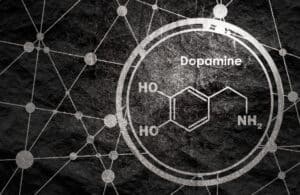**Title: Hormone Replacement Therapy: Navigating the Path to Hormonal Balance**
Hormones play a vital role in regulating numerous functions within our bodies, from metabolism and mood to reproductive health and beyond. However, as we age or undergo certain medical conditions, hormonal imbalances can occur, leading to a range of symptoms that affect our overall well-being. In such cases, hormone replacement therapy (HRT) emerges as a potential solution—a treatment that aims to restore hormonal balance and alleviate associated symptoms. In this blog, we’ll explore the ins and outs of hormone replacement therapy, shedding light on its benefits, considerations, and potential risks.
**Understanding Hormone Replacement Therapy (HRT)**
Hormone replacement therapy involves the administration of synthetic or bioidentical hormones to supplement the body’s natural hormone levels. The most common types of hormones targeted for replacement include estrogen, progesterone, and testosterone. HRT can be administered in various forms, including pills, patches, creams, gels, and injections, and the most bio-identical approach- pellets, depending on

the individual’s needs and preferences.
**The Benefits of Hormone Replacement Therapy**
For many individuals experiencing hormonal imbalances, hormone replacement therapy offers a multitude of benefits. These may include:
1. **Relief from Menopausal Symptoms**: Menopause is a natural phase in a woman’s life characterized by the cessation of menstrual periods. However, the hormonal fluctuations associated with menopause can lead to symptoms such as hot flashes, night sweats, mood swings, and vaginal dryness. HRT can help alleviate these symptoms and improve overall quality of life for menopausal women.
2. **Management of Andropause**: Often referred to as “male menopause,” andropause is characterized by a decline in testosterone levels in aging men. Symptoms may include fatigue, reduced libido, erectile dysfunction, and mood changes. Testosterone replacement therapy can help address these symptoms and improve vitality and well-being in affected individuals.
3. **Prevention of Osteoporosis**: Estrogen plays a crucial role in maintaining bone density, and a decline in estrogen levels, particularly in postmenopausal women, can increase the risk of osteoporosis. HRT can help prevent bone loss and reduce the risk of fractures associated with osteoporosis.
4. **Improvement in Cognitive Function**: Some studies suggest that hormone replacement therapy may have cognitive benefits, particularly in postmenopausal women. Estrogen, in particular, has been associated with improved memory and cognitive function.
**Considerations and Potential Risks**
While hormone replacement therapy offers significant benefits, it’s essential to consider potential risks and side effects associated with treatment. These may include:
1. **Increased Risk of Blood Clots**: Estrogen replacement therapy, especially when taken orally, may elevate the risk of blo

od clots, which can lead to serious complications such as stroke or pulmonary embolism.
2. **Breast Cancer Risk**: There is ongoing debate and research regarding the association between hormone replacement therapy and breast cancer risk. Some studies suggest a slight increase in breast cancer risk with long-term use of certain hormone formulations, particularly estrogen-progestin combinations.
3. **Cardiovascular Risk**: The effects of hormone replacement therapy on cardiovascular health are complex and may vary depending on factors such as age, underlying health conditions, and the type of hormones used. While some studies have suggested potential cardiovascular benefits, others have raised concerns about increased risks of heart disease and stroke, particularly in older women.
**Conclusion: Making Informed Decisions**
Hormone replacement therapy can be a valuable tool in managing hormonal imbalances and improving quality of life for many individuals. However, it’s essential to approach treatment decisions with careful consideration and in consultation with healthcare professionals. Many traditional western doctors use labs to determine “normal” but a good functional medicine doctor will use symptom and a good assessment of the individual to find THEIR normal. By weighing the potential benefits and risks of hormone replacement therapy and exploring alternative treatment options, individuals can make informed decisions tailored to their unique needs and circumstances. Not all symptoms have to be endured as “just a part of aging.” Ultimately, the goal of hormone therapy is to help you live your best life.